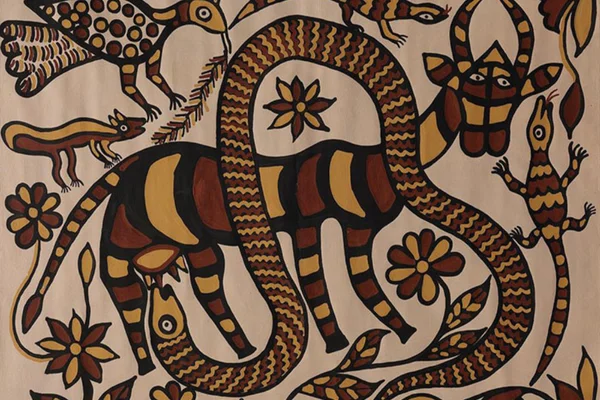A unique workshop in West Bengal’s Konedoba village, dominated by the Santhal tribe, aims to preserve the ancient Sohrai art.
About Sohrai Painting:
- Originates in the Hazaribagh area of Jharkhand but prevalent across various Indian states including Bihar, Odisha, and West Bengal.
- It is known for its vibrant colours, intricate patterns, and cultural motifs, reflecting a rich tribal heritage.
- Women of tribal communities traditionally create these paintings on mud walls during the Sohrai festival, celebrating harvest and livestock.
- Receives a Geographical Indication (GI) tag, emphasizing its uniqueness and cultural significance.
Cultural Significance and Themes:
- Sohrai paintings are a testament to the matriarchal tradition, with art skills passed down from mothers to daughters.
- Central themes include nature, fertility, and the mother-child bond, often depicting domestic animals, flora, and fauna.
- Festivals like Sohrai and Kohbar mark the creation of these paintings, coinciding with the harvest season and other communal celebrations.
Techniques and Materials:
- Employ natural earth colours foraged from the local environment, such as red, black, yellow, and white.
- Tools include chewing twigs and cloth rags, showcasing an ingenious use of simple, locally sourced materials.
- Each painting differs from village to village, reflecting local traditions, geography, and individual artistic influence.
Ref: Source
| UPSC IAS Preparation Resources | |
| Current Affairs Analysis | Topperspedia |
| GS Shots | Simply Explained |
| Daily Flash Cards | Daily Quiz |



